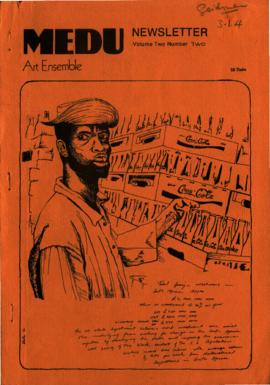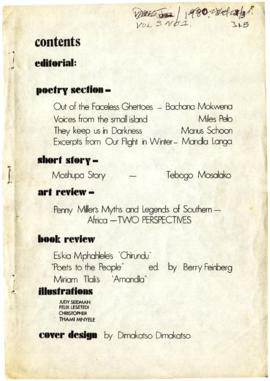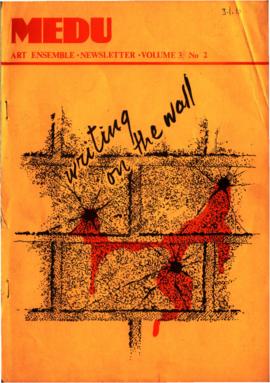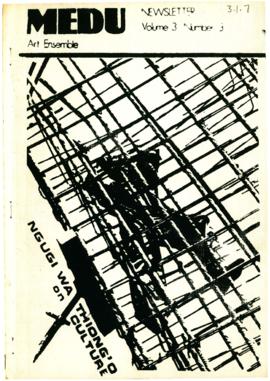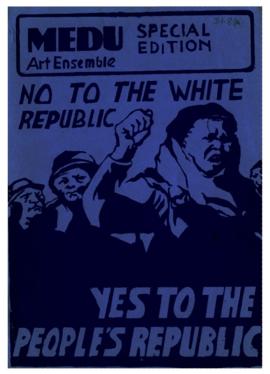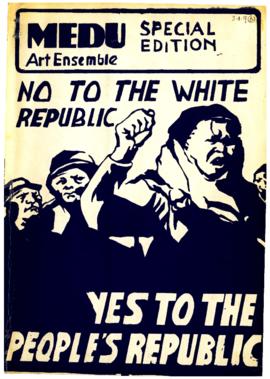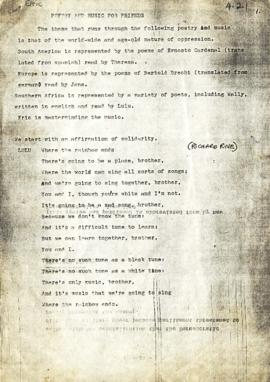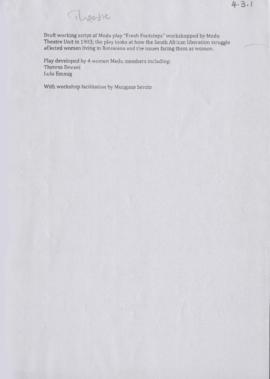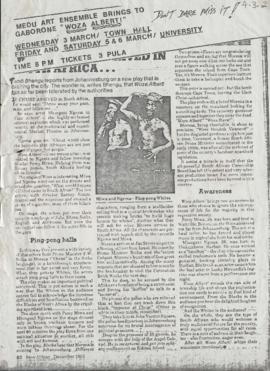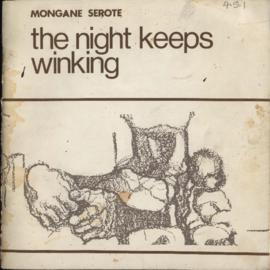Newsletter 1980, Vol. 2, No. 2
- ZA MEDU MEDU-3-3.1-3.1.4
- Sous-série organique
- 1980
Fait partie de 3-MEDU NEWSLETTERS
Cultural Bodies are a means for artists to learn from and communicate with their communities. How is it done? This edition of Medu opens discussion on the inter-communication between artists and communities. To this end, a "Graffiti Page" has been added to allow for public comments on Thami Mnyele's exhibition, which was held at the Gaborone Museum. Critical artistic reflection is included in this issue through reviews of the art of Thami Mnyele, Maselwa Malatji, Bachana Mokwena and Dennis Brutus. Like all Medu Newsletters, this includes exciting poetry by Mongane Serote and Keorapetse Kgositsile. Front page graphic by Heinz Klug on lithograph.
Sans titre

